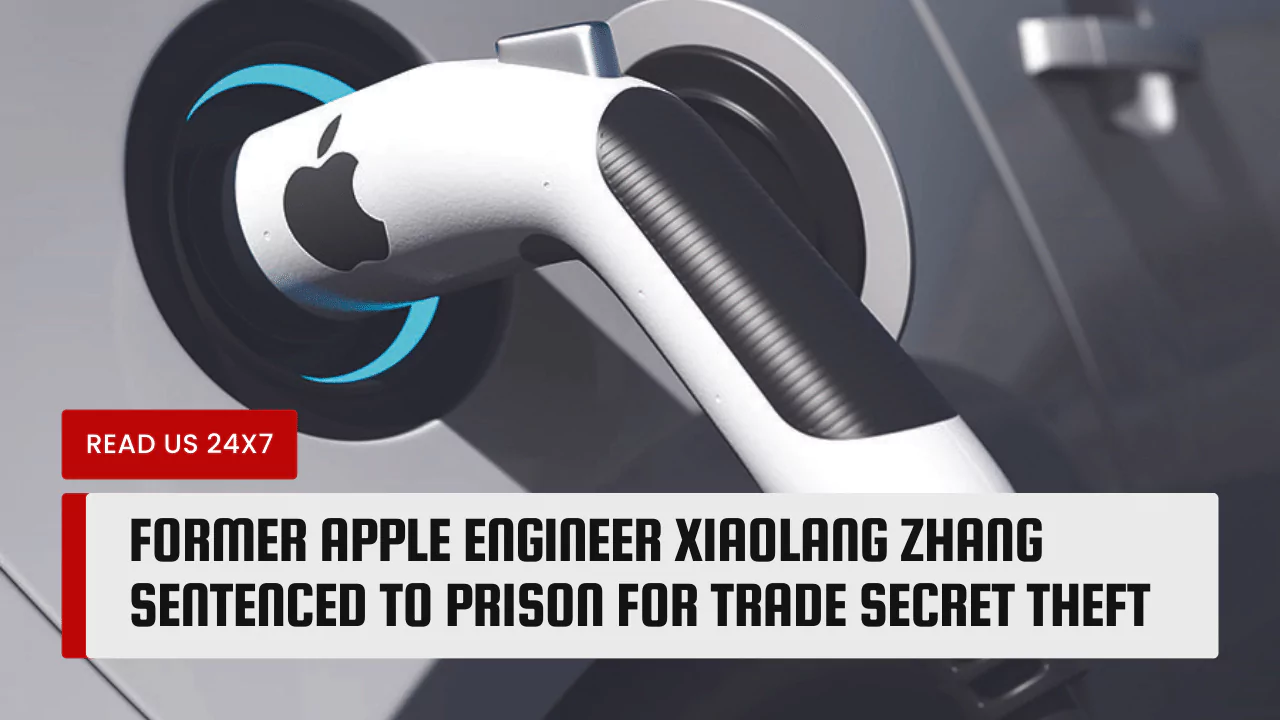Former Apple engineer Xiaolang Zhang has been sentenced to prison for trade secret theft. This article delves into the background of Xiaolang Zhang, the accusations against him, and the reasons and consequences behind his sentencing.
Background Information on the Former Apple Employee
The saga began in 2018 when the United States FBI accused Zhang of stealing trade secrets from Apple. Zhang, who had been on parental leave from the company, abruptly resigned and moved to China to join XMotors, a startup specializing in autonomous vehicle technology. His departure raised suspicions within Apple, leading to an investigation by the company’s New Product Security Team.
During his tenure at Apple, Zhang contributed to various projects, notably the development of circuit boards for analyzing sensor data, a critical component of Apple’s autonomous vehicle technology under Project Titan. The investigation revealed that Zhang had illicitly obtained sensitive documents, including a 25-page engineering schematic for an autonomous vehicle circuit board.
Despite initially pleading not guilty, Zhang eventually admitted to the charges in August 2022, acknowledging his involvement in the theft of Apple’s intellectual property. His actions raised serious concerns about the security of proprietary information within tech companies and highlighted the risks associated with employees absconding with trade secrets.
Reasons and Consequences of the Sentencing
Conspiracy to Defraud Apple
Zhang’s sentencing underscores the severity of his actions and serves as a deterrent to others considering similar breaches of trust. By conspiring to defraud Apple, Zhang compromised the company’s competitive edge and jeopardized its investments in research and development. The theft of trade secrets not only damages the victimized company but also undermines the integrity of innovation within the industry as a whole.
Tax Crimes
In addition to the theft of intellectual property, Zhang’s sentencing also addresses tax-related offenses. While details surrounding these crimes remain scarce, they likely pertain to financial irregularities or discrepancies uncovered during the investigation into Zhang’s activities. The inclusion of tax crimes in his sentencing reflects the comprehensive nature of the legal proceedings and reinforces the principle of accountability for all forms of wrongdoing.
Overall, Xiaolang Zhang’s imprisonment serves as a stark reminder of the serious consequences awaiting individuals who engage in corporate espionage and intellectual property theft. Beyond the immediate repercussions for Zhang himself, the case highlights the need for enhanced security measures and vigilance within tech companies to safeguard against insider threats. As technology continues to advance, maintaining the integrity of proprietary information remains paramount to fostering innovation and preserving trust within the industry.


